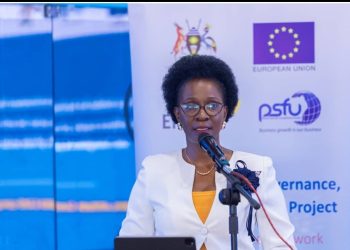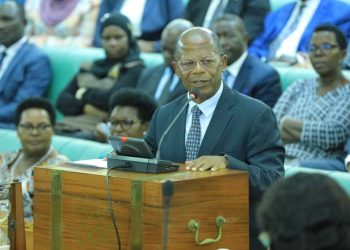The Leadership Code Act was amended two years ago, removing a provision providing for politicians to declare the assets and liabilities of their spouses and children, after a section of politicians reasoned that their privacy was being unnecessarily breached by the section.
Even before the ink on the Act could dry, the Inspector General of Government (IGG), Justice Irene Mulyagonja, is crying foul, saying the amendment has quickly turned out to be an ‘iron curtain’ behind which leaders hide their wealth. Mulyagonja yesterday told lawmakers sitting on the legal and parliamentary affairs committee of Parliament that the amendment had made a mockery of attempts to trace assets illicitly acquired by leaders.
Mulyagonja, with other top officials from the Inspectorate, was at Parliament to interface with lawmakers over her entity’s policy statement for the financial year 2019/20.
“This means that illicitly acquired assets can be conveniently registered in the names of spouses, children or defendants of the leaders without question,” Mulyagonja said.
Outside the aforesaid provision, Mulyagonja took issues with provisions in the amendments to the principal Act which has in a way cut the powers of the office of the Ombudsman. In particular, Mulyagonja cited the tribunal’s power under the Act with regard to disciplinary actions against leaders who breach the Leadership Code Act, which is now limited to making recommendations to authorized persons.
“This means enforcement of disciplinary sanctions against leaders who breach the code will depend on the willingness and co-operation of other agencies,”
Mulyagonja said.
Enacted in 2002, the Leadership Code Act provides for a minimum standard of behaviour and conduct for leaders, requires them (leaders) to declare their assets and liabilities and puts in place mechanisms to enforce compliance.
The rationale behind this law is to forestall primitive fraudulent accumulation of wealth by those with access to the national purse. Among leaders expected to declare assets and liabilities include the President and his/her cabinet, lawmakers, judges, district chairpersons, leaders of political parties and the top brass of the military, Police and prisons.
However, failure to put in place a tribunal as envisaged by the Act has rendered the Inspectorate of Government a toothless barking dog as attempts to punish errant leaders who flout the code usually end up in protracted litigation.
In March 2010, the Supreme Court ruled that the removal of Rubaga North MP John Lukyamuzi from Parliament by then IGG, Justice Faith Mwondha, over failure to declare his assets and liabilities was irregular.
The justices reasoned that the IGG was not a tribunal who could hear the case against Lukyamuzi and subsequently order his removal from Parliament. Meanwhile, Mulyagonja has described a unit led by Lt. Col. Edith Nakalema as “an ally”, saying there is a lot to do in the fight against corruption.
“For us we are happy. If there is a unit which can arrest and take people to court, we have no problem,”
Mulyagonja said.
Mulyagonja was guarded in her response and resisted attempts by Ssemujju Nganda (Kira Municipality) to take a dim view of a unit he claimed was “illegally constituted”. The Nakalema unit under State House was set up by President Yoweri Museveni in December last year to supplement the IGG’s antigraft efforts.
However, a section of Ugandans questioned its rationale, warning that it was a costly duplication of the IGG’s constitutional role.






























































